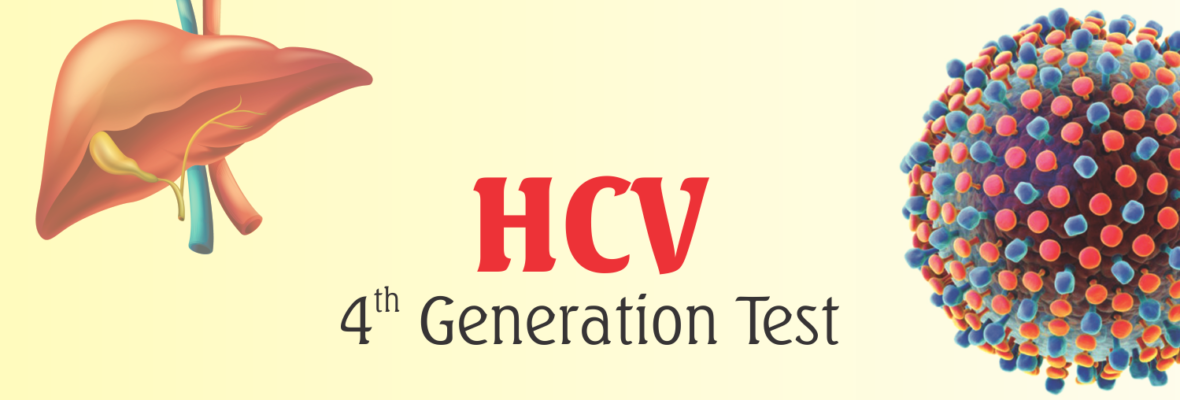HCV
Hepatitis is a global health problem, and there has been a constant increase in chronic hepatitis cases in India due to Bloodborne –Hepatitis B& C with an approx. 354 million people worldwide, as estimated by WHO.
Hepatitis Infection is caused by five hepatitis viruses – A, B, C, D, and E (HAV, HBV, HCV, HDV, and HEV). Hepatitis B and C are responsible for 96% of overall hepatitis mortality. According to regional studies, there are 6-12 million people with Hepatitis C in India. As per WHO data, in 2019, 58 million people lived with chronic hepatitis C infection, resulting in about 400,000 deaths each year. As per studies, Chronic HCV infection accounts for 12-32% of HCC and 12-20% of cirrhosis in INDIA.
The majority of Chronic HCV infections remain undiagnosed as persons suffering from HCV usually do not have any symptoms. However, these patients develop symptoms later, i.e., advanced liver disease. Such untreated infections can lead to life-threatening complications; Cirrhosis and Hepatocellular Carcinoma (HCC) account for increased death rates. Considering the disease burden, the WHO global health sector strategy on viral hepatitis has now set an ambitious goal to eliminate this as a public health threat by 2030. Since there is no vaccine for hepatitis C, the best way to prevent & reduce the spread of hepatitis C is to get tested for HCV and take timely treatment, as it takes 8 -12 weeks to cure the patient having HCV infection.
Nucleic Acid Amplification Testing (NAT) remains the gold standard for confirming HCV infection. However, due to limitations of NAT and technological innovation, 4th generation HCV tests based on simultaneous detection of Core Antigen and anti – HCV (core and non-structural) are found to be the best alternative as a diagnostic method for early detection of recent HCV infection. HCV core Antigen can be detected between 12-15 days after infection, and hence 4th generation HCV test become positive as early as the HCV RNA assay and thus reducing the window period by 5-7 weeks for HCV Acute infection in comparison to 3rd generation HCV test based on only antibody detection.
4th generation HCV test will also improve diagnosis of HCV in high-risk group populations, i.e., taking drugs, and also in HIV/HCV co-infected patients, where HCV seroconversion is often delayed resulting in negative test results with 3rd generation anti-HCV test.
4th generation Elisa test based on core antigen and anti-HCV detection is the best diagnostic screening method with higher sensitivity and specificity. In addition, batch processing of Samples can result in a quick turnaround ( less than 3 hours) when working with the Elisa method.
J. Mitra has taken a lead role in improved diagnosis of HCV infection in India by providing HCV Gen4 Ag& Ab Microlisa; 4th generation ELISA test for detection of HCV Core antigen and anti-HCV(Core, NS3, NS4 & NS5) in serum/plasma.
The product is indigenously developed, has a user-friendly procedure, and has high precision and accuracy in test results regarding sensitivity and specificity.
Awareness of Hepatitis among the populace, combined with a timely and accurate diagnosis, can reduce the impact of this deadly silent Killer Disease. Early diagnosis using 4th generation HCV Test kits and prompt treatment can significantly reduce life-threatening complications and mortality.


